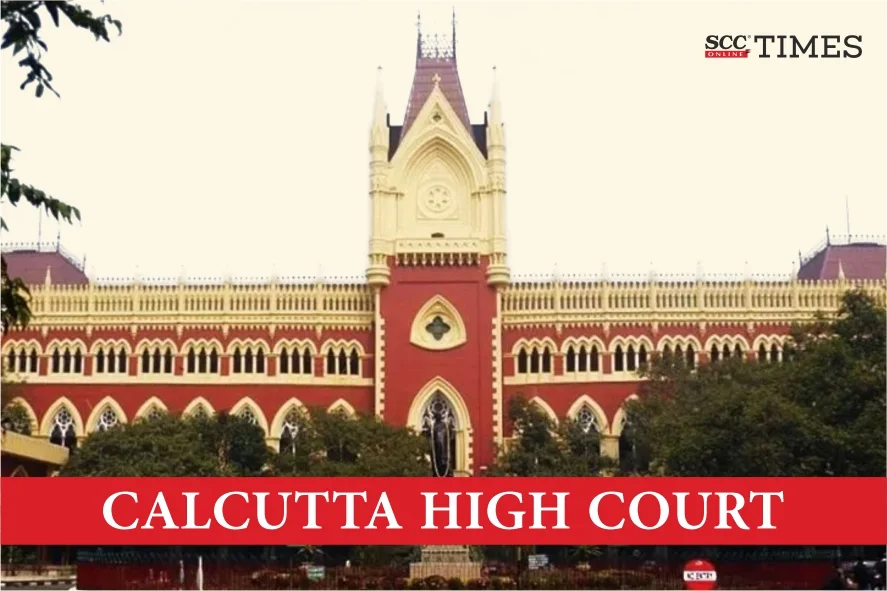Calcutta High Court: In a writ petition filed under Article 226 of the Constitution seeking a writ of mandamus to restrain the intermediaries and the media houses (respondents) from holding a media trial against the erstwhile principal of the R.G. Kar Medical College (petitioner 1), a Single Judge Bench of Shampa Sarkar, J. disposed of the writ petition and held that an indiscriminate order or restraint on the media or intermediaries on the pleadings before the Court was uncalled for. Hence, the Court refused to restrain media houses and intermediaries from publishing news against the former Principal of R.G. Kar Medical College.
Background
The former principal of R.G. Kar Medical College and his wife (petitioner 2) alleged that the media houses had been publishing untrue, unreal, and malicious stories regarding the involvement of the former principal in the rape and murder of a doctor which took place on 09-08-20204 in the vicinity of the R.G. Kar Hospital.
The petitioners contended that the news publications and social media posts caused public anger, resulting in ‘gherao’ of their premises by a mob and a negative impact on their reputation and social standing. They also alleged that such publications and posts caused prejudice to the ongoing investigation by the Central Bureau of Investigation (‘CBI’) as well as mental agony, disturbance, and distress to their family members.
The petitioners submitted that the character assassination of the former principal affected their right to privacy and the media reports had been published without verifying the correctness or authenticity of the information.
It was also contended that the extensive coverage of the incident and the news involving the former principal would prejudice the competent courts of law and ignite the wrath of the common people.
The respondents contended that the petitioners could approach the authority concerned under the Information Technology (Intermediary Guidelines and Digital Media Ethics Code) Rules, 2021, or under the Press Council Act, 1978 to address their grievance and for the removal of any prejudicial content.
The respondents also said that a total gag on either the print or electronic media would be contrary to Article 19(1)(a) of the Constitution.
Analysis and Decision
The Court found that it had not been specified as to how any of the respondents or other media houses and intermediaries had caused a media trial and said that only a general allegation was made that the extensive news had damaged the reputation of the petitioners.
The Court stated that the former principal was not an accused, and the CBI had been calling him for interrogation which is why the allegation of trial by media and the courts being influenced by any such news coverage was premature. The Court also said that specific instances had not been put forward in the pleadings to indicate that the media houses or intermediaries had broadcast any news that would amount to a media trial.
Further, the Court said that such omnibus allegations that the news coverage would harm the former principal and cause irreparable injury to his reputation would not justify curtailment of the right guaranteed under Article 19(1)(a) which guarantees freedom of speech and expression to all and also, includes the right to broadcast.
The Court stated that the media has an onerous duty of keeping the people informed and ensuring that the members of society participate in matters of national importance. It was also said that the incident of rape and murder of the doctor had attained a status of global importance and thus, the right to information is fundamental in this case since every individual in the society is severely affected by the incident either directly or indirectly.
Thus, the Court said that any restriction on either the media or the intermediaries, apart from an expectation that they would discharge their duty with responsibility, was not necessary.
The Court directed the respondents that the news about the interrogation process shall broadcast without prejudging or commenting on the role of the ex-principal and that the news must be objective and not the subjective opinion of the media.
The Court directed the media houses and intermediaries to refrain from publishing animated dramatization of the interrogation and that in case of debates and discussions, the opinions or interviews of panelists and guests shall be broadcasted with a disclaimer that such views and opinions are personal to them not the opinion of the media.
Considering the issue of the personal liberty of the petitioners, the Court noted that the police authorities had already granted them protection.
Further, the Court said that in case the petitioners had any particular allegation against any of the media houses, they may avail the remedy under the Press Council Act, 1978, and in case of the alleged actions of the intermediaries, they were at liberty to approach the authority under the Ethics Code of 2021.
The Court stated that if the petitioners were aggrieved by the opinion of any individual being broadcast by any of the media houses, they were at liberty to file a defamation suit. Thus, while disposing of the petition, the Court held that an indiscriminate order or restraint on the media or intermediaries was uncalled for.
[Dr. Sandip Ghosh v. Union of India, 2024 SCC OnLine Cal 7734, Decided on 21-08-2024]
Advocates who appeared in this case :
For Petitioners — Advocate Biswaroop Bhattacharya, Advocate Md. Zohaib Rauf, Advocate Sumitava Chakraborty
For Respondents — Advocate Rajdeep Mazumdar, Advocate Moyukh Mukherjee, Advocate Amitesh Banerjee, Advocate Anirban Ray, Advocate Md. T.M. Siddiqui, Advocate Debangshu Dinda, Advocate Varun Kothari, Advocate Nikunj Belia, Advocate Mosarat Reyaz, Advocate Ratnanko Banerji, Advocate Arunabha Deb, Advocate Soumabho Ghosh, Advocate Ashika Daga







